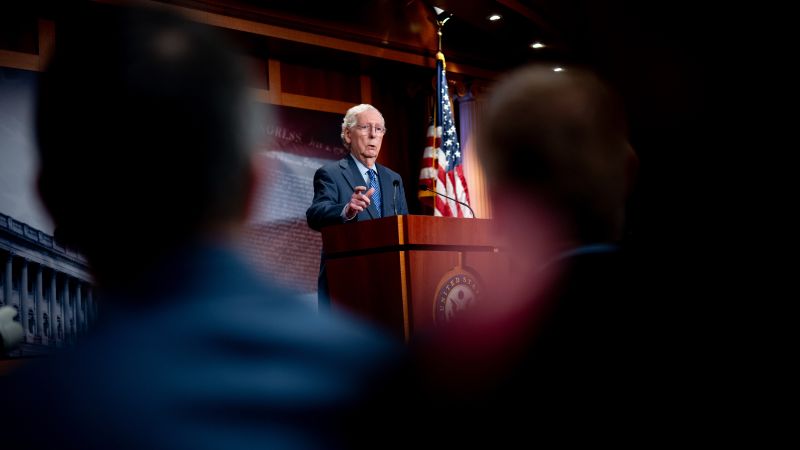Senate Minority Leader Mitch McConnell reiterated his belief that presidents should not have absolute immunity from criminal prosecution while in office, despite his vote to acquit Donald Trump in his second impeachment trial in 2021. McConnell blamed Trump for provoking the riot at the Capitol on January 6 and stated that former presidents are not immune from being held accountable through civil litigation or criminal prosecution. McConnell made these comments in response to questions from NBC News’ Kristen Welker following arguments heard by the Supreme Court on the issue of presidential immunity.
In the case currently pending before the court regarding Trump’s efforts to overturn the 2020 election and avoid federal prosecution, McConnell noted that he does not make the decision but believes that the president should have some form of immunity to avoid being constantly in court. Despite the strained relationship between Trump and McConnell, with CNN reporting that they had not spoken in more than three years, McConnell endorsed Trump in March, stating that Trump had earned the support of Republican voters to be the GOP nominee. McConnell’s endorsement came shortly after Trump’s strong showing on Super Tuesday, where he dominated races across the country.
Following nearly three hours of oral arguments, the Supreme Court appeared inclined to reject Trump’s claims of sweeping immunity and broad protections to avoid the federal election subversion case. Trump asserts that his actions were part of his official duties as president and therefore shielded from criminal liability, a position that the court seems hesitant to uphold. McConnell’s support for Trump as the GOP nominee despite their differences reflects the complexities within the Republican party, especially regarding Trump’s influence and impact on its members.
McConnell’s stance on presidential immunity and accountability aligns with his previous statements and actions, despite the political implications of his position. Even as McConnell prepares to step down as the Senate’s Republican leader in November, his endorsement of Trump as the GOP nominee underscores the party’s divisions and the challenges faced in navigating the aftermath of Trump’s presidency. McConnell’s willingness to support Trump, despite their disagreements and the ongoing legal challenges faced by the former president, highlights the complexities within the Republican party and the broader political landscape.
As the Supreme Court considers the issue of presidential immunity and accountability, McConnell’s comments and endorsement of Trump serve as a reminder of the ongoing debates within the Republican party. Though McConnell has expressed his views on the matter, the ultimate decision rests with the court, which appears inclined to reject Trump’s claims of immunity in the specific case before them. McConnell’s statements and actions in relation to Trump and the issue of presidential accountability reflect the complex dynamics within the GOP and the ongoing challenges faced by Republican leaders in navigating the post-Trump era.


